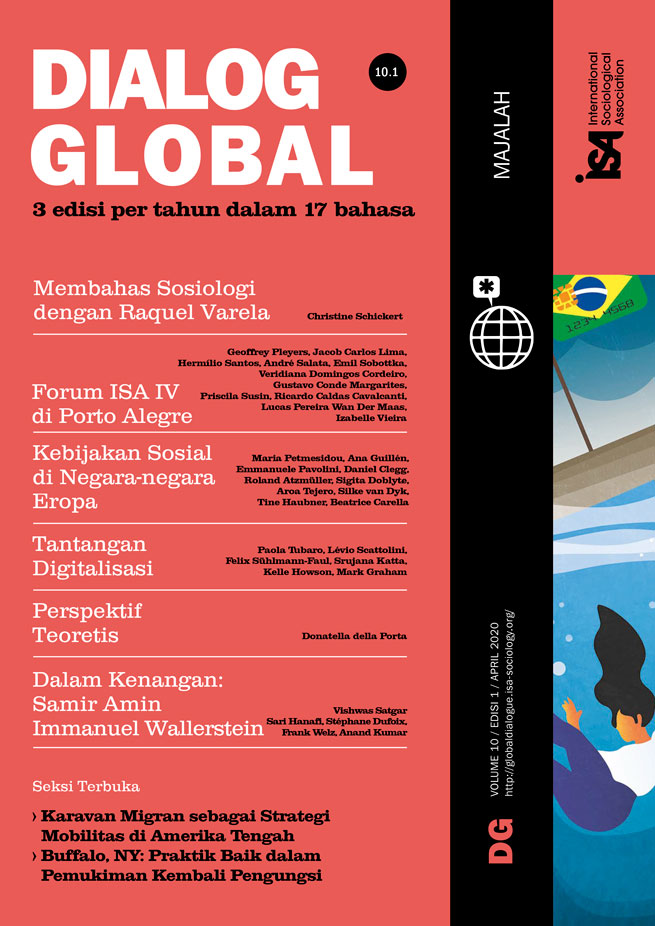One of the challenges both individuals and welfare states face today is the need for more balanced work-life trajectories. While welfare states try to encourage women’s labor participation as a protection strategy against poverty, households encounter difficulties in combining care responsibilities and employment. Childcare provision can be externalized to the market – although creating a financial burden on parents – or to state-financed and/or state-provided childcare services that might be considered as more equitable and align with the logic of social investment.
Cultural values and provision of care
Yet, welfare states in Europe differ in the extent of these work-family reconciliation policies. Southern European societies, in particular, are often characterized by the dominance of conservative cultural values and the central role played by families in the provision of care. These countries spend substantially less on family benefits than the Nordic or Continental European countries and seem to place lower priority on family policies than on other fields of social protection. When measured as a percentage of total expenditure on benefits, public spending on family benefits in all these countries is lower than the EU average, with proportions in Greece, Portugal, and Spain ranking among the lowest five in Europe in 2016. The European Social Survey of the same year nonetheless shows that the Mediterranean welfare states covered by the survey – Italy, Portugal, and Spain – are among those that are most supportive of extending work-family reconciliation policies even if it means higher taxes for all, i.e., even when individuals are reminded that additional public services imply additional financing.
Diverse empirical studies have found that public attitudes towards social policies are often shaped by the needs or self-interest of social groups. For instance, families with small children or age groups of potential parenthood might show more support for better services for families. Some studies also stress, however, the importance of cultural values as drivers in attitudes towards the welfare state and its policies. In her article “Welfare state policies and the development of care arrangements” (2005), Dr. Birgit Pfau-Effinger, professor of sociology at the University of Hamburg, argues that cultural ideas towards care and the responsibilities of the state, the family, and the market are embedded in public discourses and shape care arrangements and policies in a country.
Divergences across Southern European countries
Our research, therefore, seeks to raise precisely these questions about the influence of needs and cultural values in shaping public willingness to pay higher taxes for better services for families in Southern European societies, where care provision was traditionally provided by the family but where increasing female participation in the labor market might require the participation of other actors. Using data from the European Social Survey, we highlight that there are unmet care needs in Southern Europe, which are evidenced by high levels of support for better services for families. However, the findings show divergent patterns of how self-interest and cultural values influence these attitudes across the different countries. Although Southern European welfare states are often considered to be similar in terms of the role of traditional gender and family values, the findings of our study contribute to the evidence that there are important differences between them. We believe that there is more room for extending services for families in some of these countries than in others.
In Portugal, exceptionally high and normalized levels of labor market participation of women in general, and of mothers in particular, result in high and consistent levels of solidarity in welfare support among women and men from different social classes and educational backgrounds. This is accompanied by the absence of significant effects of different cultural values and an even higher solidarity among older generations. All of this seems to indicate space for more generous state policies for families in the country.
In Italy, however, support for better services for families differs more across social groups. Economically less privileged and lower social classes are significantly less supportive of family policies, which might be shaped by the relatively high tax burden in Italy. A clear impact of cultural values is also found, although its direction is not entirely as expected: both individuals who place higher priority on tradition and conformity and those who embrace values such as social justice, equality, or welfare for all show less support for extending work-family reconciliation policies.
This unexpected effect of values that a priori align with the logic of the welfare state might be related to the higher tax burden in Italy, where further extensions could be seen as threatening household income and, therefore, as playing against the mentioned values. In other words, the family might still be seen as the most adequate care institution in Italy, and embracing social justice or equality might result in support for family income protection policies rather than for public childcare services. Indeed, the 2017 European Values Study suggests this dominance of traditional family values in Italy: 52% agree or strongly agree that children suffer if their mother works, as compared to 26% in Spain.
As the latter might already suggest, Spain seems to have moved more clearly away from traditional gender and family culture than Italy: individuals embracing values of social justice, equality, and welfare are more willing to pay higher taxes for better services for families, but tradition and conformity do not affect welfare support significantly. Further, the higher support of parents with small children and the lower share of children under three in formal childcare signal unmet care needs in families with dependent children, whereas individuals struggling economically or those who live in big cities tend to show lower levels of solidarity.
To conclude, while the results in Portugal hint that families might be becoming relatively strong and their demands for better services might be successful, this is not necessarily the case in Spain and, particularly, Italy. Other social institutions such as employers nevertheless might start playing a more substantial role in providing childcare or flexible work arrangements, which are still limited although increasing in importance in Southern Europe. Yet, inequalities in access to these benefits threaten principles of social investment.
Sigita Doblytė, member of ISA Research Committee on Poverty, Social Welfare, and Social Policy (RC19) <doblytesigita@uniovi.es>
Aroa Tejero, University of Oviedo, Spain <tejeroaroa@uniovi.es>



















